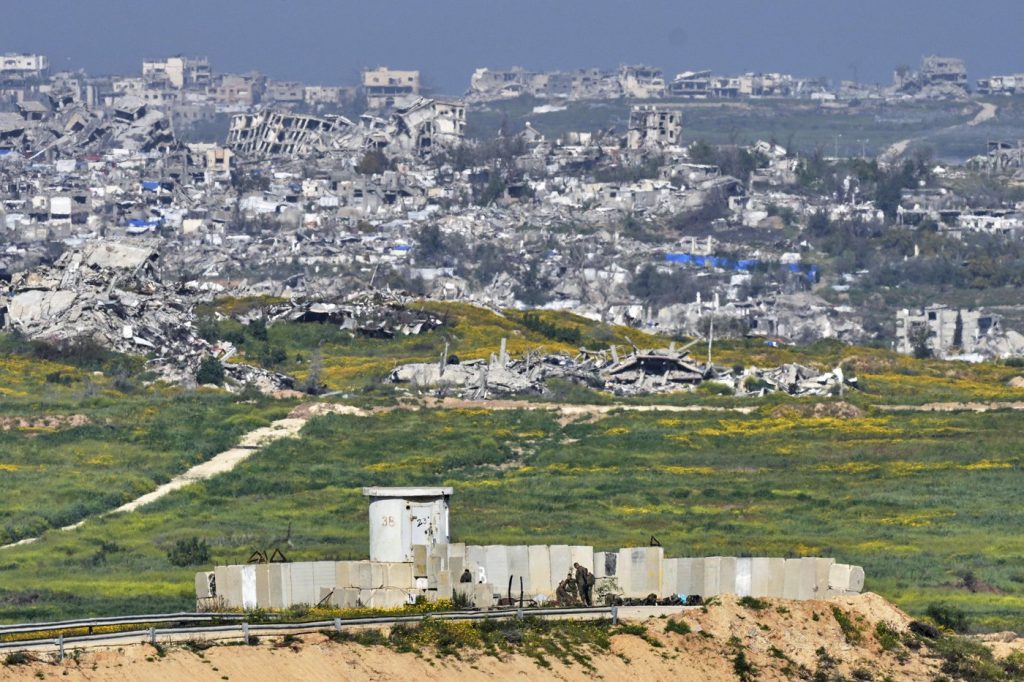The Israeli Defense Minister has announced that Israeli troops will remain in "security zones" within the Gaza Strip, Lebanon, and Syria indefinitely. This decision follows the unilateral expansion of Israel's borders as a result of the conflict initiated by Hamas's attack on October 7, 2023.
Israel justifies the need to maintain control over these zones as a preventive measure against future attacks; however, this act of seizing territory has raised concerns regarding military occupation as defined by international law. The acquisition of land through force is widely regarded as a violation of international norms, a point frequently referenced by Western allies of Israel in discussions about Russia's invasion of Ukraine.
Historically, Israel has captured territories during conflicts with its Arab neighbors since its founding in 1948. Israeli governments have long asserted their right to retain these lands for self-defense while promising to return them through peace agreements, as exemplified by Israel's return of the Sinai Peninsula to Egypt following the Camp David Accords.
Currently, Israel has formally annexed east Jerusalem and the Golan Heights, which it seized from Syria. Moreover, the West Bank has been under Israeli occupation for over 50 years, with more than 500,000 Jewish settlers residing in numerous settlements throughout the area. Although Israel withdrew its soldiers and settlers from Gaza in 2005, it later enforced a blockade in collaboration with Egypt after Hamas assumed control in 2007.
In a statement made on Wednesday, Defense Minister Israel Katz indicated that Israeli forces would remain in the designated security zones in Gaza, Syria, and Lebanon "in any temporary or permanent situation." Following the October 2023 attack by Hamas, Israel initiated a large-scale military offensive and established a buffer zone along its borders. This has led to significant territorial control, with reports indicating that Israel now governs over 50% of Gaza.
Regarding Lebanon, Israel was expected to withdraw troops under a ceasefire agreement with Hezbollah reached in November. However, Israeli forces have continued to occupy five strategic locations along the Lebanese border, conducting strikes against perceived militant targets. In Syria, Israeli forces have moved from the Golan Heights into territories within Syria after the civil unrest that led to President Bashar Assad's government being overthrown.
Lebanon and Syria have condemned these actions, arguing that they violate their sovereignty and international law. Still, both countries' military capacities are inadequate to counter Israeli advances effectively. Hezbollah, which emerged during Israel's occupation of southern Lebanon, has threatened to resume hostilities should Israel fail to withdraw, although its military capabilities have been severely weakened by ongoing conflicts.
The Palestinians continue to advocate for an independent state encompassing east Jerusalem, the West Bank, and Gaza, territories that Israel occupied during the 1967 war. A two-state solution is internationally regarded as the most viable avenue to peace, yet serious negotiations have stalled for over 15 years. Hamas has declared that it will only release a significant number of hostages in exchange for a complete Israeli withdrawal from Gaza, a situation that complicates ongoing ceasefire discussions.
As for the United States, there has been no official comment on Katz's statements. However, the Trump administration has historically expressed unwavering support for Israel's military actions in Gaza and its policies surrounding territorial acquisition. This includes controversial decisions such as recognizing Israel's annexation of the Golan Heights and relocating the U.S. Embassy to Jerusalem, policies that have continued under the Biden administration. Trump has also proposed that the U.S. take ownership of Gaza post-war and repurpose it as a tourist destination, a proposition viewed unfavorably by both Palestinians and much of the international community.
Israeli Prime Minister Benjamin Netanyahu has indicated support for resettling the Palestinian population, an action many critics view as ethically and politically problematic given the current humanitarian situation in Gaza.










